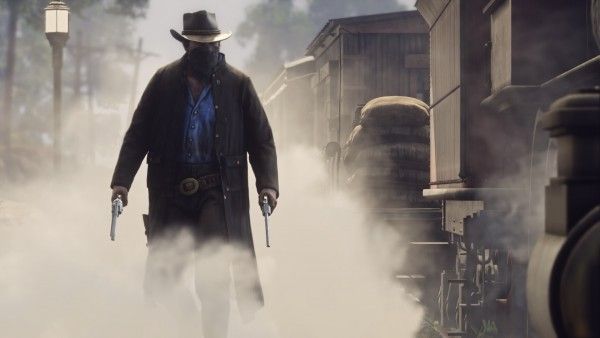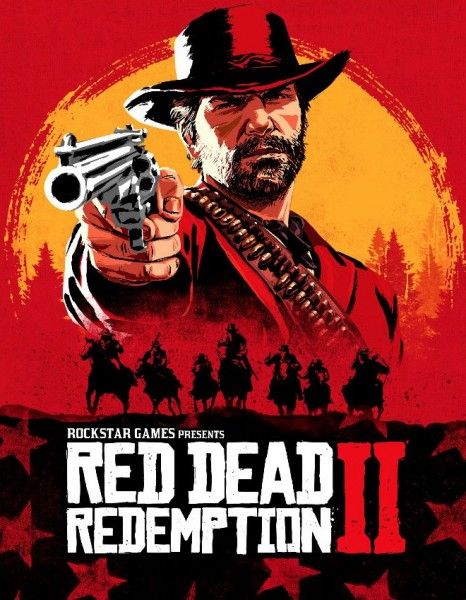There are loads of various gameplay mechanics at work in Red Dead Redemption 2, and not all of them are necessary. A holdover from Red Dead Redemption is the honor system. It’s fairly straightforward: Do good things like help stranded travelers or do chores around the camp and you’ll get honor points. Do bad things like rob people or trample them with your horse and you’ll get negative points. It may be more fun (and profitable) to play as a scoundrel, but if you behave you’ll get discounts at shops.
The problem with a morality system in Red Dead Redemption 2 is that the narrative doesn’t really support it. Even though Arthur’s story is about his morality and how he comes to recognize the evil that he’s done, that is a fixed narrative storyline, and when you try to maneuver around it, the gameplay becomes transparent because the honor system doesn’t click with the story.
For example, earlier on in the game, Arthur is basically a bad guy. He may be kind to those in the gang and soulful as he writes in his journal, but the missions you perform put you in the role of a bad guy. Occasionally there might be an option to show mercy or play nice, but more often than not, you’re going to hurt innocent people. And that’s fine if that’s who the character is, but it’s weird to go from a guy who’s beating up debtors to a guy who sucks out the venom from a random guy’s snakebite.
When the story demands that you behave one way and then in your free time you can act completely differently, the best Red Dead Redemption 2 can offer is Arthur mumbling about how he’s not a good guy and some NPC saying, “No, you are a good guy!” What’s meant to be a complex character instead smacks of ambivalence not by intent but by virtue of gameplay mechanics. The element of “choice” in Arthur’s behavior isn’t really supported by how the game needs him to behave in the long run.
If Rockstar had wanted to implement a morality system, they should have made it central to the story (especially since the story is so concerned with Arthur’s moral arc). We’ve seen this implemented fairly well with the Mass Effect trilogy, where dialogue options and actions are tied to the protagonist’s morality. If I want to play as “Good Shepherd”, then my character relationships are going to be built around that personality. My moral choices have an effect on how the story is framed even if the narrative beats are largely intact regardless of whether I play “good” or “bad”.
Red Dead Redemption 2 never makes this leap of how my behavior changes anything substantial. It only matters on the most superficial level, which would be fine if Arthur’s story wasn’t about a man reckoning with the morality of his actions. Rockstar should have gone all-in on this morality system or just ditched it entirely. If they chose to throw it out, you could still do side missions and random encounters but put the benefit towards something useful like the Dead Eye meter or stamina rather than minor discounts at shops. But by assigning a point value to the morality system and leaving it there, Red Dead Redemption 2 stops feeling immersive and comes off as contrived.
If you missed any of our previous Red Dead Redemption 2 coverage, peruse the links below:
- How 'Red Dead Redemption 2' Eventually Becomes "Horrible Boss Simulator"
- 'Red Dead Redemption 2' and the Problem with Its Epilogues
- Watch: 5 Essential 'Red Dead Redemption 2' Hunting Tips
- 5 Great Easter Eggs to Find in 'Red Dead Redemption 2'



